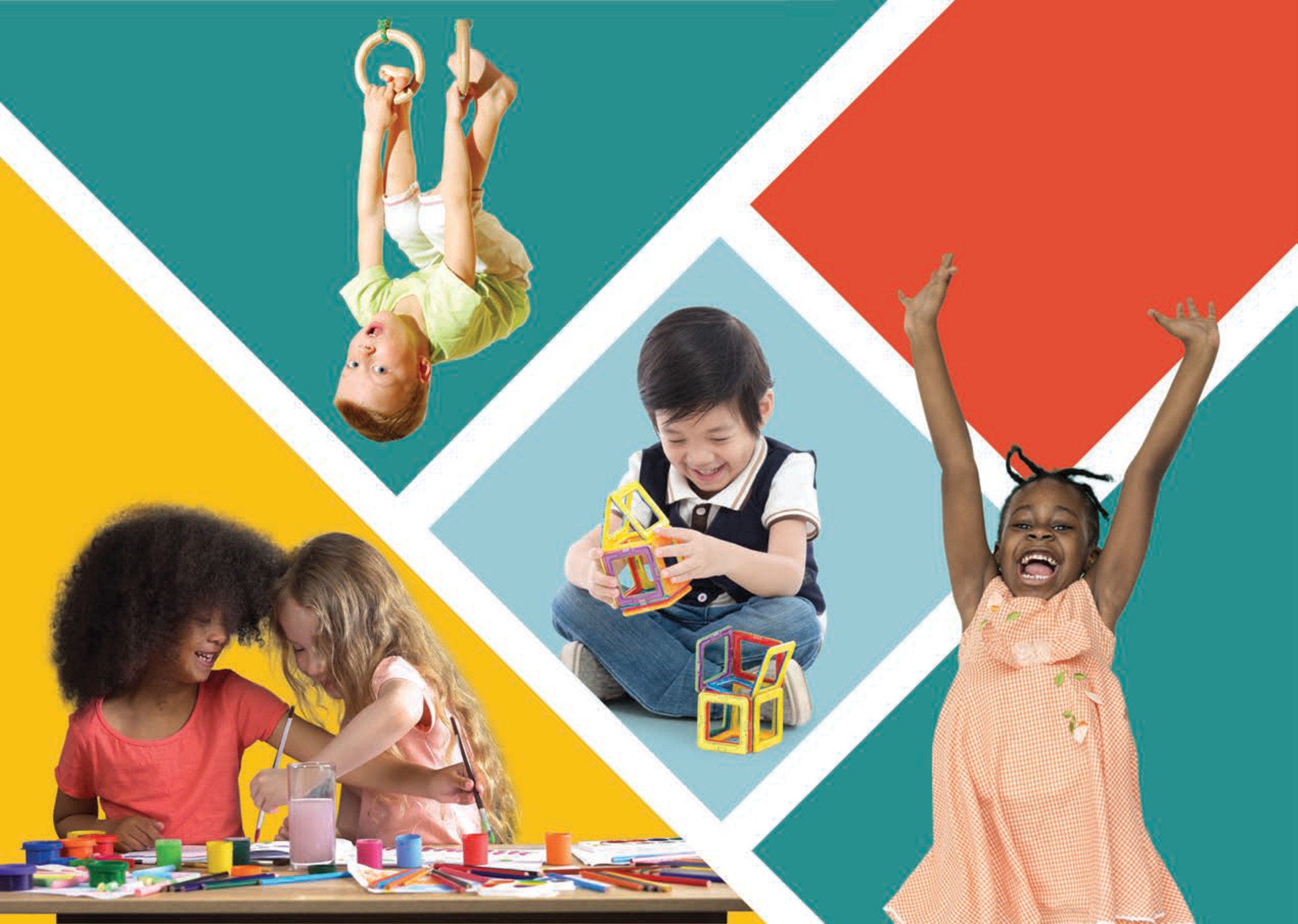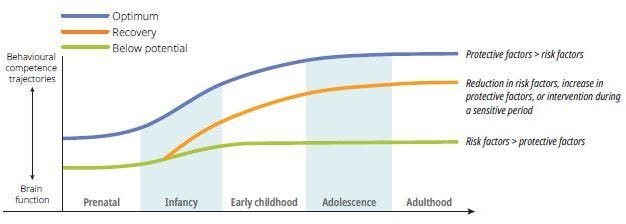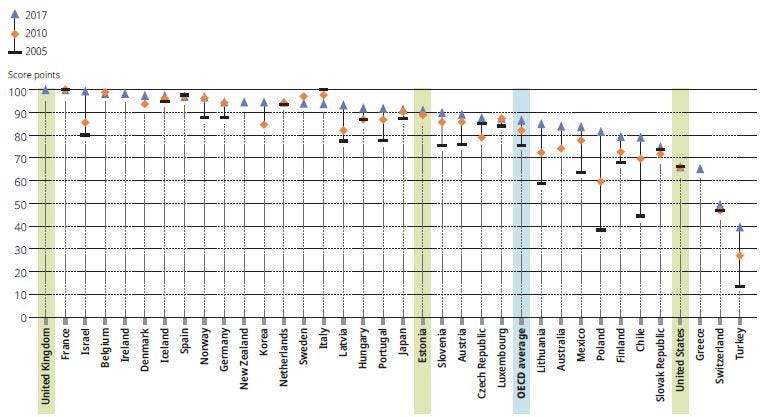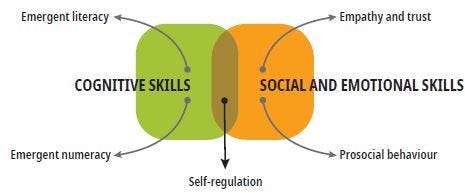The International Early Learning and Child Well-Being Study (IELS) puts a spotlight on how children are faring at age five. This chapter presents the rationale for focusing on children’s learning and development in the earliest years, and outlines the importance of having evidence on early learning that is comparable across countries. The chapter also provides information on the overall design of the study.
Early Learning and Child Well-being in Estonia

Chapter 1. Early learning matters: The International Early Learning and Child Well-being Study
Abstract
The early years: A window of opportunity … and risk
The first few years of a child’s life is a period of great opportunity, but also one of great risk. The cognitive and social-emotional skills that children develop in these early years have long-lasting impacts on their later success throughout schooling and adulthood. Although the quality of later schooling is important, strong early learning accelerates later development whereas a poor start can inhibit it (Bartik, 2014[1]; Heckman, 2006[2]; Schoon et al., 2015[3]; Sylva et al., 2008[4])
Early learning and child well-being are interrelated and mutually reinforcing. Children thrive in caring families, where they feel safe and happy, and where they are supported to learn about themselves and their social, cultural and physical environments. The day-to-day interactions and activities between young children and their parents and other family members foster children’s well-being and their emerging cognitive and social-emotional skills (Melhuish et al., 2008[5]).
Children also learn in settings outside of their homes, including in their wider family networks, their neighbourhood communities, in early childhood education and care (ECEC) settings, and in school. Children from even the most socially deprived homes can thrive when they have sustained access to high-quality and responsive learning environments. A positive early platform of learning enables children to develop the skills they need to succeed in school and later life (Figure 1.1).
Figure 1.1. Children’s early learning and later life outcomes

Source: Shuey and Kankaraš (2018[6]), The Power and Promise of Early Learning, https://doi.org/10.1787/f9b2e53f-en.
The window of positive early learning starts to close when children are around seven years old, due to a sharp decrease in brain malleability at this point (World Bank, 2018[7]). Investment in children’s early learning enables normal, timely development, and shapes children’s long-term ability to learn (Figure 1.2). If children have not developed core foundation skills by this point, they will struggle to progress well at school, and may also have social and behavioural difficulties in adolescence and in adulthood. Seeking to ameliorate a poor start at older ages is complex, challenging and costly, and yields low success rates (Heckman, 2006[2]). At a system level, the proportion of children with poor early development constrains the extent to which any education system can achieve success for these children and perform well as a whole.
Figure 1.2. Risk and protective factors affect development trajectories

Source: Adapted from Walker et al. (2011[8]), Early Childhood Stimulation Benefits Adult Competence and Reduces Violent Behavior, https://doi.org/10.1542/peds.2010-2231.
Countries are increasingly focusing on early years policies as a means to lift overall educational performance and mitigate disadvantage. Many countries have increased ECEC participation rates and their overall investments in early years policies (Figure 1.3). Yet early learning remains a relatively neglected areas of international education research. As a consequence, there is little internationally-based evidence on how to improve early years policies and achieve better results for children.
Figure 1.3. Change in enrolment rates of children aged 3 to 5 years (2005, 2010 and 2017)

Source: OECD (2019[9]), Education at a Glance 2019: OECD Indicators, https://dx.doi.org/10.1787/f8d7880d-en.
The promise of early childhood education may not always deliver for some children. This may be due to, for example, the quality and responsiveness of provision, the extent to which provision focuses on the types of skill development children need most in the early years, and the timeliness and continuity of provision. At a system level, countries could learn a great deal from each other on how to enhance early learning outcomes for all children, by using a common framework for doing so.
Countries can learn from each other to improve children’s early learning outcomes
The International Early Learning and Child Well-Being Study (IELS) was designed to help countries assess their children’s skills and development and to increase understanding of how these relate to children’s early learning experiences and well-being.
The study provides countries with comparative data on children’s early skills, along with a framework to foster the growing interest in early childhood outcomes. Using this information, countries can better identify factors that promote or hinder children’s early learning. The study analyses associations between children’s early skills and elements of their individual characteristics, home learning environments and education experiences.
IELS directly assessed the emergent literacy and numeracy, self-regulation and social-emotional skills of a representative sample of five-year-olds enrolled in registered school or preschool settings in each participating country or economy. Three countries participated in IELS in 2018: England (United Kingdom), Estonia and the United States.
Children were assessed through developmentally appropriate interactive stories and games delivered on a tablet device, supported on a one-to-one basis by trained study administrators. The assessment was carried out in the school or ECEC setting the children attended, and participating children were supported on a one-to-one basis by trained study administrators. The assessments did not involve any reading or writing, and prior experience with digital devices was not needed. The parents of participating children and the staff member or teacher who knew each child best were also asked to participate, in order to provide fuller information on each child.
IELS took a holistic approach to understanding a child’s early learning development at the age of five (Figure 1.4). It consisted of a play-based direct assessment of children’s abilities in the four early learning domains of emergent literacy, emergent numeracy, self-regulation and empathy. In addition, IELS collected information from parents and educators to better understand children’s early skills across a wider set of early learning domains, including children’s prosocial behaviour and levels of trust.
Figure 1.4. IELS approach to gathering direct and indirect information

In addition to the direct assessment of learning domains, IELS collected information from parents and educators to indirectly assess children’s emergent skills. Critically, the study also gave children a voice, with their input shaping some of the study’s more innovative results.
IELS emphasised the well-being of children participating in the study above all else. Tasks were engaging and developmentally appropriate. Participation was voluntary. Trained professionals – who also liaise with staff in the child’s school – administered the assessment. The study minimised the level of input required from participating schools, teachers, children and parents, while still collecting the relevant information.
The results from IELS are presented in an international report and in a series of in-depth reports for each of the three participating countries. This volume focuses on the findings for Estonia.
References
[1] Bartik, T. (2014), From Preschool to Prosperity: The Economic Payoff to Early Childhood Education, W.E. Upjohn Institute, http://dx.doi.org/10.17848/9780880994835.
[2] Heckman, J. (2006), Skill formation and the economics of investing in disadvantaged children, http://dx.doi.org/10.1126/science.1128898.
[5] Melhuish, E. et al. (2008), “Effects of the Home Learning Environment and Preschool Center Experience upon Literacy and Numeracy Development in Early Primary School”, Journal of Social Issues, Vol. 64/1, pp. 95-114, http://dx.doi.org/10.1111/j.1540-4560.2008.00550.x.
[9] OECD (2019), Education at a Glance 2019: OECD Indicators, OECD Publishing, Paris, https://dx.doi.org/10.1787/f8d7880d-en.
[10] OECD (2018), Early Learning Matters, https://www.oecd.org/education/school/Early-Learning-Matters-Project-Brochure.pdf (accessed on 4 February 2020).
[3] Schoon, I. et al. (2015), The Impact of Early Life Skills on Later Outcomes, http://discovery.ucl.ac.uk/10051902/1/Schoon_2015%20The%20Impact%20of%20Early%20Life%20Skills%20on%20Later%20Outcomes_%20Sept%20fin2015.pdf (accessed on 31 July 2019).
[6] Shuey, E. and M. Kankaraš (2018), The Power and Promise of Early Learning, http://www.oecd.org/edu/workingpapers (accessed on 14 February 2019).
[4] Sylva, K. et al. (2008), Final report from the primary phase: Pre-school, school and family influences on children’ s development during Key Stage 2 (7-11) Publication Details, http://ro.uow.edu.au/sspapers/1807 (accessed on 4 February 2020).
[8] Walker, S. et al. (2011), “Early childhood stimulation benefits adult competence and reduces violent behavior”, Pediatrics, Vol. 127/5, pp. 849-857, http://dx.doi.org/10.1542/peds.2010-2231.
[7] World Bank (2018), World Development Report 2018: Learning to Realize Education’s Promise, https://www.worldbank.org/en/publication/wdr2018 (accessed on 4 February 2020).